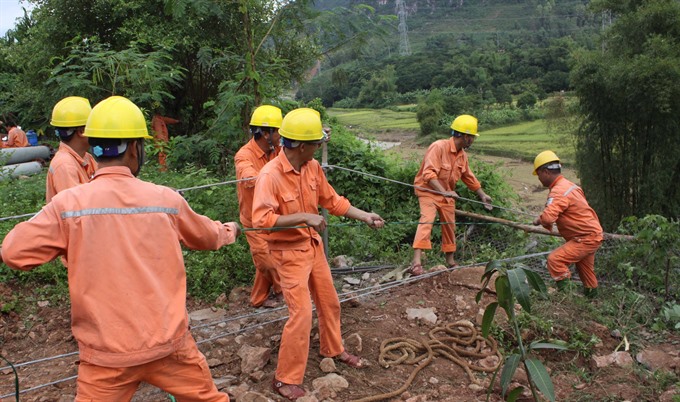The average electricity retail price will officially rise today to VND1,720 (7.6 US cent) per kWh, increasing 6.08 per cent from the current tariff of VND1,622 (7.1 cent) per kWh.

The average electricity retail price will officially rise today to VND1,720 (7.6 US cent) per kWh, increasing 6.08 per cent from the current tariff of VND1,622 (7.1 cent) per kWh.
The Ministry of Industry and Trade (MoIT) on Thursday sent a press release saying that Prime Minister Nguyen Xuan Phuc had approved the increase.
Economists said the power price hike was because it has been kept unchanged since March 2015. Keeping the tariff unchanged could cause a financial imbalance for the State-owned Electricity of Viet Nam (EVN) as the prices of some inputs for production have been continuously increasing since 2015. In addition, the imbalance could make it harder for the country to attract investment in new power resources.
The ministry said the price adjustment was calculated based on EVN’s power production costs in 2016. The results were independently audited by Deloitte Viet Nam Company.
An MoIT report showed that last year, the power output was 159.8 billion kWh while electricity losses were 7.57 per cent, which was 0.37 per cent lower than that of 2015.
Total electricity production cost was VND266.1 trillion while the total revenue was VND265.5 trillion in 2016. The electricity sector therefore reported a loss of VND593.4 billion.
Deputy Prime Minister Vuong Dinh Hue at a meeting on November 8 asked the MoIT to quickly complete its plan for adjusting the electricity tariff. Hue required the ministry to co-operate with the Ministry of Finance to consider the effects of the adjustment on people’s quality of life while also seek solutions to encourage investment into power production.
Franz Genner, the leader of the energy expert team at the World Bank, was quoted by the online newspaper dantri.com.vn that Viet Nam should recognise the risk of a power shortage in the future. As electricity demand is increasing by 10 per cent a year, the country must increase power capacity and develop new power resources.
He added that thermo-power plants have been relying on imported coal for production was another challenge.
The current price of 7.6 US cent per kWh made it hard to attract investment into power generation as the price was only enough for EVN’s operation and maintenance costs, he told the newspaper.
The expert said the power tariff should be increased by 40 per cent by 2030.
The retail price for households is still divided into six groups, with households that use less electricity paying lower prices, in an effort to ensure poorer families are not burdened by energy prices.
The PM has approved the average electricity retail price but not announced specific plans for each customer. — VNS





